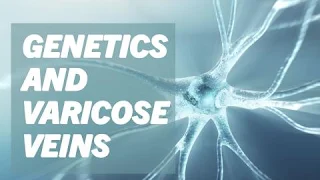Varicose veins, those twisted and swollen veins often visible on the legs, affect millions worldwide. While lifestyle factors like prolonged standing, obesity, and lack of exercise are well-known contributors, many wonder: do genetics play a role in developing varicose veins? Let’s dive into the science and uncover how your family history may influence your vein health.
The Genetic Link to Varicose Veins
Research shows that genetics significantly contribute to the likelihood of developing varicose veins. If one or both of your parents have varicose veins, your chances of developing them increase considerably. According to studies, the risk can be as high as 90% if both parents are affected.
The genetic predisposition involves weaknesses in the vein walls or valves. Veins contain one-way valves that keep blood flowing toward the heart. When these valves weaken or fail, blood pools in the veins, causing them to enlarge and become varicose. Genetic factors may determine the elasticity of vein walls or the effectiveness of the valves.
How Hereditary Varicose Veins Develop
Varicose veins often result from chronic venous insufficiency, a condition where veins struggle to return blood to the heart efficiently. Inherited traits like weaker connective tissues or insufficient valve structure can exacerbate this problem. Over time, the combination of faulty valves and increased pressure leads to the visible bulging and twisting of veins.
These hereditary factors, combined with lifestyle and environmental elements, can accelerate the development of varicose veins. For example, a sedentary lifestyle or standing for prolonged periods may worsen the condition if you are already genetically predisposed.
Other Risk Factors That Contribute
While genetics play a significant role, other factors can influence the development of varicose veins. These include:
- Age: As you age, veins lose elasticity, and valve function deteriorates.
- Gender: Women are more prone to varicose veins due to hormonal changes during pregnancy, menstruation, or menopause.
- Pregnancy: Increased blood volume and pressure on the veins during pregnancy can lead to varicose veins.
- Lifestyle: Lack of exercise, prolonged sitting or standing, and obesity increase the risk.
These factors can exacerbate a genetic predisposition, making it essential to adopt preventive measures early.
Preventing Varicose Veins When You Have a Family History
While you can’t change your genes, there are steps you can take to reduce the likelihood of developing varicose veins:
- Stay Active: Regular exercise improves circulation and strengthens leg muscles, which support your veins.
- Maintain a Healthy Weight: Reducing excess weight lessens pressure on your veins.
- Avoid Prolonged Standing or Sitting: Take breaks to move around or elevate your legs to improve blood flow.
- Wear Compression Stockings: These provide additional support to your veins, helping to prevent pooling of blood.
- Eat a Healthy Diet: Include foods rich in fiber, antioxidants, and vitamins to support vein health.
Making these changes can minimize the impact of hereditary risk factors and promote better vein health overall.
When to Consult a Doctor
If you have a family history of varicose veins and notice early symptoms like leg pain, swelling, or visible veins, it’s important to consult a healthcare professional. Early intervention can help prevent complications such as blood clots or ulcers. Your doctor may recommend lifestyle adjustments, compression therapy, or minimally invasive treatments to address the condition effectively.

